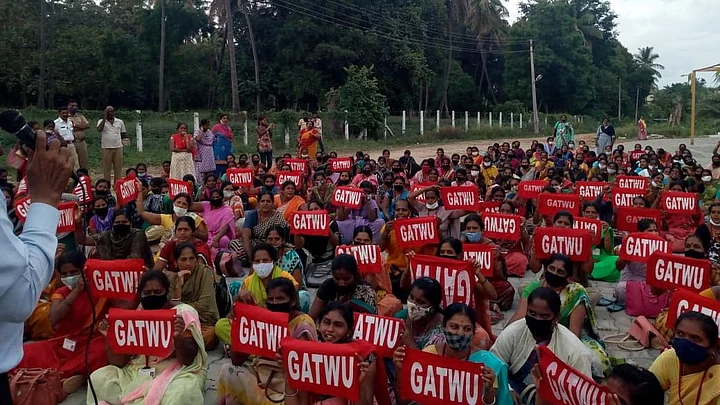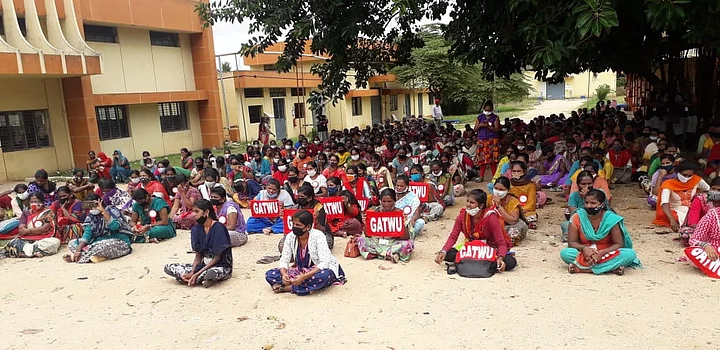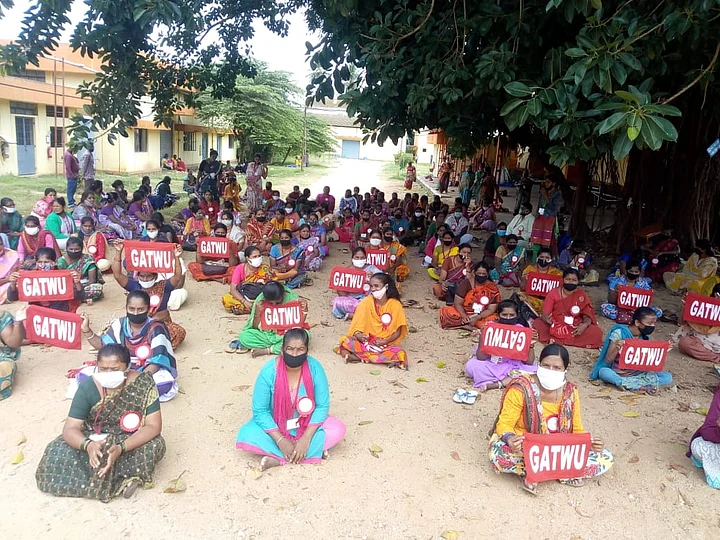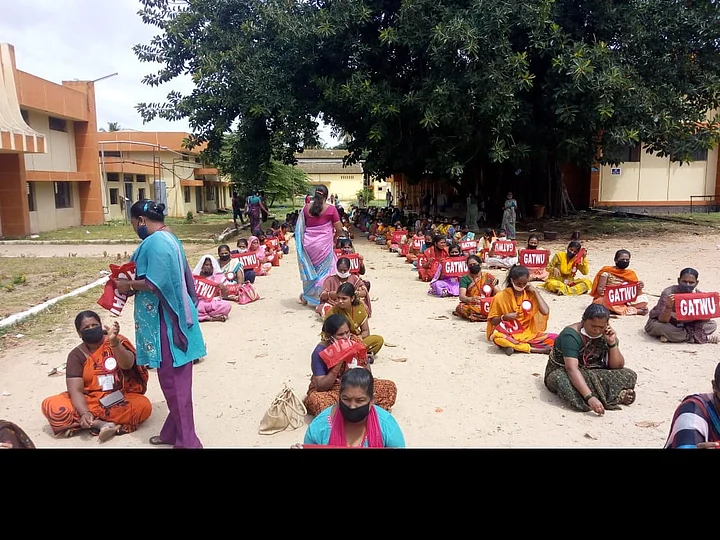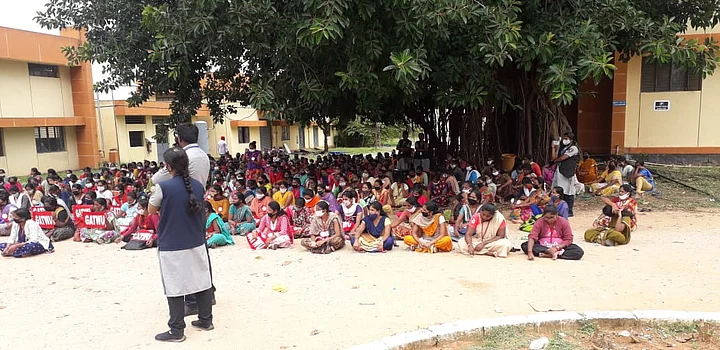Every day for over two weeks, Pavithra has been walking 10 kilometres from her home to the Euro Clothing Company’s factory premises in Karnataka’s Srirangapatna to join hundreds of women garment workers in demanding their jobs back.
In a surprise announcement on 6 June, nearly 1,300 garment workers employed in the unit were informed that effective immediately they no longer had jobs and the factory was closing. For many women like Pavithra, a 28-year-old mother of two who’s spent nearly a decade at the factory, the news was life-changing.
“It takes me an hour-and-a-half to walk to the factory every day but I still go. It’s a question of life and death. I have to feed my children and mother. We just want the factory open, and we want our jobs back,” she said. Approximately 700-800 women garment workers are reportedly turning up to protest outside the factory every day.
Videos of women protesting the overnight layoffs drew censure from Twitterati, who questioned clothing brand H&M for allegedly refusing to pay for work done.
In 2019, 70-80 percent of the production in the Srirangpatna unit was for H&M. In 2020 so far, they have been the only client. Otherwise, it was mostly small brands, said a trade union leader.
Nearly three weeks have passed, and four reconciliation meetings have taken place between the management of ECC II, a unit of Gokaldas Exporters, the state labour department and aggrieved garment workers but to no avail.
Prathibha R, president of the Garment and Textile Workers Union (GATWU) told The Quint that the management was not using the term ‘layoffs’. “In all our meetings, they are not using the word ‘layoff’, they keep saying that there are no new orders. Under the Industrial Disputes Act, layoffs can only be for 45 days. Moreover, it must be preceded by notice to workers and government permission,” she said.
This dispute between the workers and the management is becoming high-profile, with the labour minister and the local MP getting involved in the discussions.
‘If Your Office Suddenly Shuts, Won’t You Be Scared?’
For working a shift from 9 am to 5:30 pm six days a week, workers at the factory unit were paid minimum wages of approximately Rs 8,000 after deductions.
According to some of the workers, they started getting suspicious when the company began moving out the machinery.
Thirty-eight-year-old Mahadevamma has been working at the factory since it was first set up 10 years ago.
“There were rumours that there would be layoffs. We started doubting when they started removing the machines a few days before. We asked the HR also, he said there is nothing to worry about,” she said.
“We are very scared. What is the reason for shutting shop with no reason? We could have made some arrangements had they informed us. If your place of work shuts suddenly, won’t you get scared?”Mahadevamma, garment worker
Shobha SS used to travel 10 km to come to work at the factory every day before she lost her job. The mother of two says she has a debt of Rs 1 lakh and is the sole breadwinner in her family.
“Per week, I have to pay Rs 900 in interest. What are we supposed to do now? I have been working here for eight years, this is all I have. If I lose this job, I won’t survive,” she explained about why she travelled 20 km a day from her home in Sabankuppe to sit in the factory compound.
Forced Resignations & Other Problems
Several garment workers The Quint spoke to recounted instances of company representatives turning up at homes of workers and calling them at odd hours of the night to resign and stop protesting.
“The management wants us to resign. They don’t want to compromise. They have called people at midnight to ask them to resign. They have also gone to people’s homes and asked them to quit,” said one worker.
Another worker said, “They keep telling us that we will not get anything if we keep fighting. They tell us to take the half-month salary and stay at home.”
‘Stand By Our Responsible Purchasing Practices’: H&M
In a response to the viral video on Twitter, H&M Customer Service replied saying that “the drop in customer demand due to COVID-19 will inevitably impact suppliers.”
When contacted, M Manjunath, factory manager said that he could not comment on the issue as the matter was in reconciliation.
This is the first major instance in India of factory workers suffering due to a fast fashion brand’s business practices.
New Trade Union Initiative (NTUI), of which GATWU is a part, alleged that H&M “was clearly aware that they were reducing orders leading to the shutting down of the factory.”
According to a report in Independent, several brands were reportedly pushing for their factories in Asia to stay open without abiding by safety regulations.
“Earlier this month, Soy Sros, a garment worker in Cambodia was imprisoned after simply writing a Facebook message about dismissals at her factory. Many of the workers that have been laid off say that they are starving and on the brink of losing their homes. For garment workers, the choice is stark; lose your job or go back to work and risk your life,” the report observed.
It is also important to note that the majority of workers employed in garment factories are women.
(With inputs from Independent)
(At The Quint, we question everything. Play an active role in shaping our journalism by becoming a member today.)
